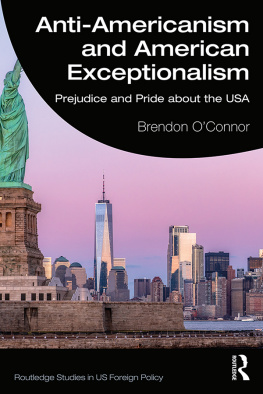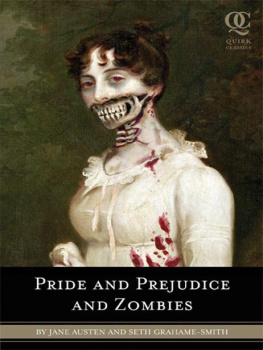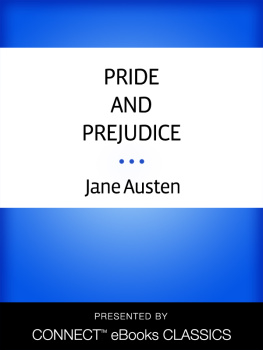Tropes of Intolerance
Tropes of Intolerance is a Baedeker of bigotry, a short course on xenophobic racism and populist nationalism both enduring threats to the social fabric of democratic societies.
Each chapter is a self-contained commentary and a building block. In the first, the author considers the concepts of pride and prejudice, and discusses patterns of discrimination and strategies of resistance. This is followed by an illustrated consideration of the emblems of enmity words, signs, symbols, and other verbal and visual expressions of both chauvinism and intolerance. Linking the first two, the third chapter explores the nature of American Nativism and its contemporary expression. This is followed by an assessment of the exploitation of anxiety among particularly vulnerable sectors of society by skillful, manipulative leaders and their agents, and the exacerbation of social divisions through the use of stereotyping, stigmatizing, and labeling. Chapter 5, Trumped Up, narrows the focus to the present day, the president himself, and his exacerbation of polarizing particularism. A sixth chapter examines two of the most malignant ideologies resurgent anti-Semitism and the rise of Islamophobia bringing readers full circle. In addition to a brief Coda and a glossary of key terms related to the principal topic, there is a post-election Afterword written in late November, 2020.
Peter I. Rose is Sophia Smith Professor Emeritus and Senior Fellow of the Kahn Institute at Smith College and a visiting scholar at the Institute for Research in the Social Sciences, Stanford University.
First published 2021
by Routledge
52 Vanderbilt Avenue, New York, NY 10017
and by Routledge
2 Park Square, Milton Park, Abingdon, Oxon, OX14 4RN
Routledge is an imprint of the Taylor & Francis Group, an informa business
2021 Taylor & Francis
The right of Peter I. Rose to be identified as author of this work has been asserted by him in accordance with sections 77 and 78 of the Copyright, Designs and Patents Act 1988.
All rights reserved. No part of this book may be reprinted or reproduced or utilised in any form or by any electronic, mechanical, or other means, now known or hereafter invented, including photocopying and recording, or in any information storage or retrieval system, without permission in writing from the publishers.
Trademark notice: Product or corporate names may be trademarks or registered trademarks, and are used only for identification and explanation without intent to infringe.
Library of Congress Cataloging-in-Publication Data
Names: Rose, Peter I., 1933 author.
Title: Tropes of intolerance: pride, prejudice, and the politics of fear / Peter I. Rose.
Description: New York, NY: Routledge, 2020. | Includes bibliographical references.
Identifiers: LCCN 2020034061 | ISBN 9780367274900 (hardback) | ISBN 9780367274917 (paperback) | ISBN 9780429296369 (ebook)
Subjects: LCSH: United StatesEthnic relations 21st century. | PrejudicesUnited States. | Toleration. | United StatesRace relations21st century. | ImmigrantsUnited States.
Classification: LCC E184.A1 R725 2020 | DDC 305.800973dc23
LC record available at https://lccn.loc.gov/2020034061
ISBN: 978-0-367-27490-0 (hbk)
ISBN: 978-0-367-27491-7 (pbk)
ISBN: 978-0-429-29636-9 (ebk)
Typeset in Bembo
by codeMantra
Politics have no relation to morals.
Niccol Machiavelli
If you tell a lie often enough, it becomes the truth.
Joseph Goebbels
Real power is I dont even want to use the word fear.
Donald J. Trump
To the memory of my Dutch wifes father
Jacques Frederik Theobald Alfred Karel Cohen
Arrested by the Nazis at his home in Amsterdam, sent to the East, and murdered in Auschwitz-Birkenau in 1942, he was one of millions persecuted by the scourge of racial nationalism, blatant scapegoating, and the complicity of countless numbers of citizens in Germany and in the lands they occupied, including The Netherlands.
This book is a sort of Baedeker of bigotry. The idea for writing it began several years ago when, seeing the rising tide of anti-immigrant fervor, a resurgence of anti-Semitism, and an eruption of Islamophobia in the United States and Europe, I decided to focus the Robin M. Williams, Jr. Lecture I had been invited to deliver at the annual meeting of the Eastern Sociological Society in March of 2016 on such matters. I titled my talk The Politics of Fear: Intolerance, Nativism, and the Wars Within.
Over the course of preparing the lecture, the factors that had prompted the decision of my concern, especially the convergence of racial discrimination and hostility toward immigrants, seemed to be accelerating in intensity. These matters were doubtlessly fueled by reaction to events in Europe following the influx of hundreds of thousands of Muslim migrants escaping from chaos in Africa and the Middle East to seek safe havens there and the growing fear of a similar invasion in the United States. All of this was heightened by the rhetoric and posturing of Donald Trump in his campaign for the nomination to become the Republican candidate for President in 2016.
Trump obtained the nomination and won the election. With his inauguration as the 45th President of the United States, the matter seemed to worsen daily as it became clear that his stock in trade centered on building walls to keep undesirable foreign elements at bay and on vilifying members of racial minorities in this country. It was a frightening replay of the methods of denigration, denial, and discrimination practiced by fascist governments in Europe not so long ago.
Every scientist knows that correlation is not necessarily causation, but studies by organizations such as the Southern Poverty Law Center and the Anti-Defamation League as well as many sociologists and political scientists recorded near-exponential increases of expressions of intolerance during and after the election.
In the first years of the Trump Administration, a number of books were published about his personality, his penchants, and his politics. Among the many were Bob Woodwards Fear; Michael Wolfs Fire and Fury; James Comeys A Higher Loyalty; David Frums Trumpocracy; Tim Albertos American Carnage; Greg Millers Trump, Russia and the Subversion of Democracy; and an edited volume, A Clear and President Danger: Narcissism in the Era of Donald Trump, by Leonard Cruz. All were focused in the main on the president himself. By the summer of 2020, at least ten more volumes had been released on Donald Trump and his term as president. Several were exposs by individuals who had served as members of Trumps inner circle, including the long-anticipated bombshell, The Room Where It Happened, by John Bolton, and Too Much and Never Enough, a family portrait by the presidents niece, Mary L. Trump, a clinical psychiatrist.
This book is something different. It is best likened to a short course on xenophobic racism and populist nationalism, both enduring threats to the social fabric of democracy. While in its pages, I, too, often cite the words and deeds of the 45th president, and one chapter is mainly about him, it is formatted as a series of commentaries on more general contexts and concepts that spiral into one another and sometimes loop back to earlier narratives to illustrate or reinforce a point made in a previous section.
Tropes of Intolerance begins with a brief examination and explications of the concepts of pride and prejudice in their varied manifestations. This first chapter offers a foundation for examining the politics of fear and the exploitation of anxiety among particular sectors of society by skillful, manipulative leaders and their agents. Scapegoating, labeling, and the exacerbation of social divisions (real and concocted) are discussed, along with the methods of enhancing nationalism. These include the tactics of individuals and parties who appeal to those who feel most threatened by changes in society. The techniques of propaganda to further particular causes are then examined in is a kind of case study. It is about Donald Trump, a man whose manners, mores, messages, and actions embody aspects of almost everything discussed thus far. The book could end there, but, because they represent two of the most persisting forms of institutionalized bigotry and the most glaring examples of the power of malignant ideologies, I added a final essay that looks at the still-extant manifestations of the worlds oldest hatred, anti-Semitism, and the rise of one of the newest ones, Islamophobia, which, in some significant ways, now mirrors age-old campaigns against Jews.











